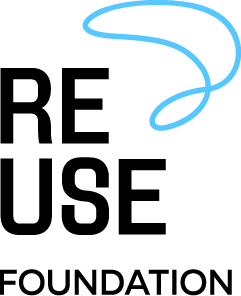Featured
Refilling At Home Can Prevent Plastic Waste, Let’s Do More Of It! |
|
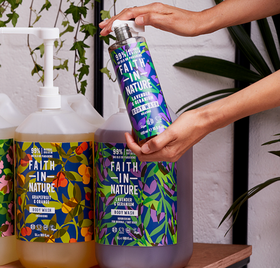
|
A simple way to prevent plastic waste is to do your own refills at home. More companies are getting onboard with it. We need the big brands to join the movement
The basic idea is simple. People keep ‘bottles for life’ at home and refill them as needed. Because bottles are used over and over people are happy to invest in something better than disposable plastic, such as glass, or stainless steel or crockery, but even if a plastic container is used numerous times a lot of plastic waste is prevented. People can take their reusable bottles to a local store for refills, but an growing trend is people doing their own refills from bulk containers or concentrates at home. There are many examples of successful businesses showing the way. In America, Bluelandoffers a wide range of household cleaning products in refill packs while in the UK, smol sells concentrates for products like laundry powder, dishwashing tablets and sprays. Other companies focus on the containers rather than the product. Refill with LESS, for example, sells glass and stainless-steel bottles that people can refill at home. In many countries it’s now easy to get personal care and household care product in bulk so it can be refilled at home, but big brands have yet to join the party. This means that if you want Dove, TRESemmé, L'Oréal or [name your favourite mass brand], you have no choice but to buy product in single use plastic. If top brands made product available in refillable formats, we could refill at home and prevent a lot of plastic waste. These large companies know the potential of refilling at home:
L’Oreal said: “refill at home is the most powerful system in term of environmental impact”. We need refill! Not landfill.[Image Credit: © Faith In Nature] |
Highlights
Switzerland Begins Nationwide Plastic Recycling Initiative |
|
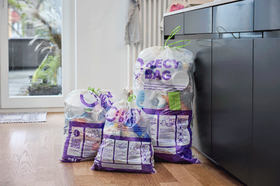
|
A new collection system for recycling plastic packaging and drinks cartons has started in select Swiss municipalities, with plans to expand nationwide in the coming weeks. Currently available in Bern, Dietikon, Greifensee, Oetwil an der Limmat and Schlieren, Recypac’s initiative is backed by major retailers, food producers and municipalities, including Aldi Suisse, Coop, Migros and Nestlé. Supported by a non-profit organisation, the program aims to improve recycling rates, targeting 55% for plastic packaging and 70% for drinks cartons by 2030. Consumers are provided with collection bags, which cost between CHF1 and CHF4, allowing them to gather their recyclable waste at home for drop-off at participating retailers or municipal collection points. The recycled materials will be processed in neighbouring countries, with a vision of creating a more sustainable circular economy within Switzerland’s borders.[Image Credit: © RecyPac]
|
UK Launches PackUK for Enhanced Plastic Waste Abatement |
|
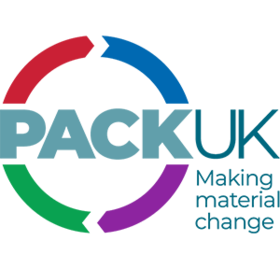
|
PackUK launched the UK’s new Extended Producer Responsibility for packaging (pEPR) programme, with the Statutory Instrument taking effect on January 1, which will set and adjust pEPR fees, facilitating payments to local authorities for collection and recycling services. PackUK will also lead public communications to promote proper packaging waste disposal. This initiative, overseen by an industry-led steering group, will collaborate with packaging producers to appoint a new Producer Responsibility Organisation. As part of its work, PackUK will drive innovation and job creation in recycling, supporting a more circular economy. [Image Credit: © Crown copyright] |
IBM, L’Oréal Partner For Sustainable Cosmetic Innovation |
|

|
IBM and L’Oréal launched a collaboration to integrate generative artificial intelligence into cosmetic formulation, focusing on sustainability and innovation. This partnership aims to create a custom AI foundation model to enhance L’Oréal’s research and development, helping the company meet its 2030 sustainability targets, such as using bio-sourced materials and advancing circular economy practices. By utilizing AI-driven insights, L’Oréal seeks to revolutionize the beauty industry with more sustainable, high-performance products. [Image Credit: © Jill Burrow on Pexels]
|
Most Brits Support Reuse And Refill Over Single-Use Plastics |
|
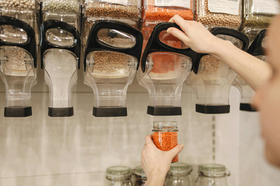
|
A recent survey by GoUnpackaged revealed that 65% of Brits believe retailers should prioritize reuse and refill systems over single-use plastics. Conducted by Opinium on 2,000 UK adults, the survey showed particularly strong support among younger generations, with 77% of 18-24 year olds eager to incorporate reuse and refill into their weekly shopping routines. Half of all respondents expressed a preference for supermarkets offering these sustainable systems. Catherine Conway, Director at GoUnpackaged, emphasized the potential for customer loyalty and compliance with upcoming regulations such as Packaging Extended Producer Responsibility, but barriers remain, with nearly half reporting difficulty accessing systems in-store or online. Several UK supermarkets, including Aldi, M&S, Morrisons and Waitrose, are trialling reuse and refill stations.[Image Credit: © Polina Tankilevitch on Pexels]
|
National Efforts And Innovation Needed to Tackle Plastic Pollution |
|
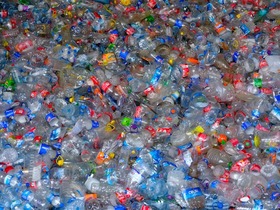
|
A World Economic Forum article suggests that while a legally binding global treaty on plastic pollution remains elusive, national and innovative approaches are gaining traction. Chile’s public-private initiatives, such as eco-labelling and grassroots recycler training, are driving measurable progress in reducing plastic waste. In 2023, Mercado Circular collaborated with P&G in Mexico to expand reuse schemes, with plans to open 25 to 30 new points of sale by March 2025. Carrefour and Walmart have been piloting reuse solutions with market leaders like Loop and Algramo. However, the broader plastic waste challenge persists, with over 460 million tonnes of plastic expected to be produced in 2024, the majority of which will be mismanaged or sent to landfills. The Ellen MacArthur Foundation reports an 11% increase in virgin plastic use since 2018, underscoring the urgent need for systemic change and continued collaboration for a circular economy.[Image Credit: © Engin Akyurt from Pexels.com]
|
The Rise Of Sustainable Consumerism |
|
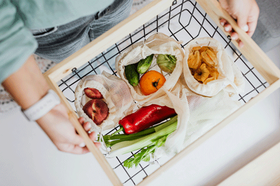
|
Consumers worldwide are driving a sustainability revolution, shifting from passive choices to active demands for ethical and eco-friendly products. With 82% of shoppers prioritizing brands that align with their values, sustainability is no longer optional but essential. Factors such as environmental awareness, ethical responsibility and health considerations are reshaping purchasing decisions. Millennials and Gen Z, in particular, are leading the charge, willing to pay extra for sustainable alternatives. However, barriers such as cost and skepticism remain, requiring brands to adopt transparent, traceable and purpose-driven practices. Partnerships with organizations like Plastic Bank are proving effective in building trust and delivering measurable impact. Companies like Patagonia, IKEA and Natura exemplify how sustainability not only boosts customer loyalty but drives innovation and growth. [Image Credit: © Kaboompics.com on Pexels]
|
CornNext-17, Possibly A Sustainable Alternative To Plastics |
|
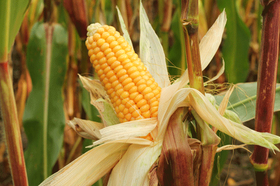
|
Corn Next introduced CornNext-17, a bio-based material designed to combat plastic pollution. Made from renewable corn starch, CornNext-17 is fully biodegradable, decomposing naturally within 30 days without leaving harmful residues. Unlike traditional and bio-plastics, it maintains a natural polysaccharide structure, ensuring superior versatility and high performance in various applications such as packaging, consumer goods and industrial components. CornNext-17 is cost-effective and exhibits excellent mechanical properties, including strength, flexibility and heat resistance.[Image Credit: © Marek Studzinski on Unsplash]
|
Top FMCG Companies Push "Waste to Value" Initiative In Sri Lanka |
|
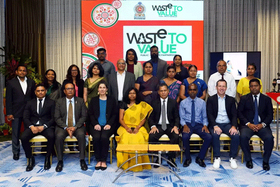
|
The "Waste to Value" initiative, a Public-Private Partnership involving GIZ, Coca-Cola, Nestlé, Unilever, and Sri Lanka’s Ministry of Public Administration, aimed to strengthen plastic waste management in the Western Province. The collaboration focused on infrastructure improvements, behavioral change, and fostering a circular economy. Key outcomes included constructing Material Recovery Facilities (MRFs) in Gampaha, Kesbawa, Homagama, and Wellampitiya, alongside training local authority staff in sustainable waste management. Proponents claim the initiative demonstrates the potential of coordinated efforts across public and private sectors to build a sustainable plastic waste management system.[Image Credit: © Nestlé Group]
|
C-Care and Meadow Launch Circular Packaging Innovation in the U.S. |
|

|
C-Care, a U.S. contract manufacturer, and Swedish startup Meadow are collaborating to introduce the Meadow Kapsul, a circular packaging solution for the personal care market. Product is pre-filled into lightweight aluminium packaging that is placed inside a reusable dispenser. The companies point to the elimination of the traditional pull tab on aluminium cans that reduces raw material use. Empty cans are placed in regular recycling bins for processing.[Image Credit: © Meadow] |
AEPW’s Playbook Promotes Practical Plastic Recycling Solutions |
|
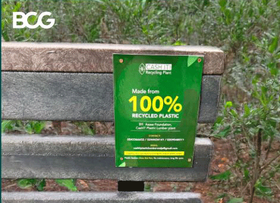
|
The Alliance to End Plastic Waste released a playbook, "Capturing Value Through Basic Mechanical Recycling of Mixed Plastic Waste," showcasing simple recycling models that it says transform mixed plastic waste into valuable products like furniture and construction materials. Designed for both low-income and advanced economies, the solutions emphasize low-capital investment, job creation, and environmental benefits and includes practical insights from projects in countries such as Ghana and the Philippines that aim to divert plastic waste from landfills and oceans.[Image Credit: © Alliance to End Plastic Waste]
|
Tackling Consumer Concerns About Tethered Plastic Caps |
|
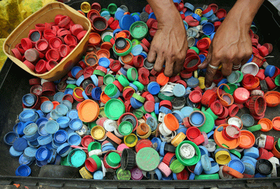
|
Tethered plastic bottle caps are intended to prevent litter and enhance recyclability but face widespread criticism. Consumers argue that they cause discomfort, injuries and are an unnecessary burden, especially for those with disabilities. Research highlights that plastic bottle caps are a significant component of ocean and land pollution, yet many remain skeptical about whether tethers truly reduce plastic waste. Critics worry about increased plastic use, potential leaks and the inconvenience of handling the caps. [Image Credit: © Krizjohn Rosales on Pexels]
|
Unilever Touts Its URefill Reuse Initiative in Bangladesh |
|
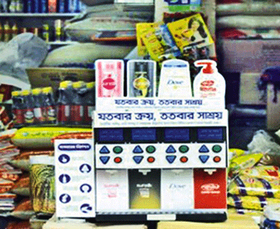
|
Unilever provided some details on its refill pilot, URefill in Bangladesh that it ran in Dhaka in 2022. The URefill system promotes reuse by enabling consumers to refill containers, reducing plastic footprint by up to 90% and saving about 20% per serving compared to buying new packaging. In Bangladesh, 95% of sales occur in micro and small outlets, so Unilever developed a compact refill systems suitable for small retailers, which it says is a pioneering solution. A post-pilot survey revealed strong appeal among consumers, with 43% becoming repeat users and Unilever says it plans to expand URefill but did not provide details.[Image Credit: © Unilever]
|
Environmental Groups Sue FDA Over Phthalate Use in Food Packaging |
|
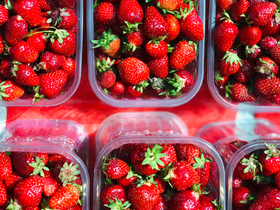
|
Environmental groups filed a lawsuit against the FDA for its refusal to restrict the use of phthalates, toxic chemicals found in food packaging. Phthalates, used as plasticizers, are linked to severe health risks, including birth defects, reduced IQ in children, and infertility. Despite scientific evidence and petitions spanning eight years, the FDA has denied or ignored calls to revoke a 40-year-old authorization for phthalates. The agency argues that industry has largely abandoned food-contact uses for phthalates, a claim contested by advocates who allege FDA's stance aligns with industry interests. While Europe has restricted phthalates, the U.S. lags in regulations. The lawsuit seeks a judicial ban on the chemical class.[Image Credit: © Elena Rabkina on Unsplash]
|
Industry Insights on the Global Plastics Treaty, Post INC-5 |
|
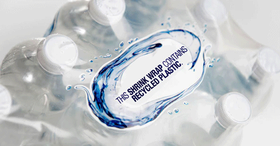
|
INC-5 failed to deliver a Global Plastics Treaty that would curb plastic pollution through harmonized global policies. Representatives from Dow, SAP, and PepsiCo discuss this failure and review the importance of this treaty in establishing unified standards, enabling systemic changes, and fostering circular economies. The discussion reveals that fragmented policies, inadequate waste management, and industry misalignment are key barriers. It also makes clear that business leaders want clear global rules to reduce compliance complexities, scale solutions, and drive investments. Specifically, SAP highlighted the role of technology in enabling traceability, while PepsiCo and Dow stressed sustainable design and closed-loop systems.[Image Credit: © Dow]
|
Charges Dropped for Greenpeace Protestors at Unilever HQ |
|

|
The UK Crown Prosecution Service (CPS) dropped charges against 34 Greenpeace activists who protested against plastic pollution at Unilever’s London headquarters. The protest, part of Greenpeace’s campaign against Unilever’s rollback of plastic reduction targets, included activists scaling the building and blocking entrances using models of Dove products and a parody logo. The charges, including aggravated trespass and "locking on," a new offence under the Public Order Act 2023, were dropped due to insufficient evidence. Activists had faced combined sentences of up to 15 years in prison.[Image Credit: © Unilever]
|
Thailand Bans Plastic Waste Imports, Calling It 'Waste Colonialism' |
|
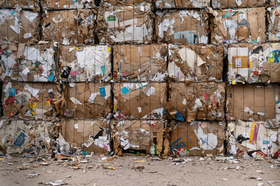
|
Thailand has banned imports of plastic waste starting January 2025. The country had been a major destination for plastic waste from developed nations, importing over 1.1 million tonnes between 2018 and 2021. Poor handling of these imports—often burned or inadequately recycled—posed severe environmental and health risks. This ban aligns with global trends, as other Southeast Asian countries also resist being dumping grounds for richer nations’ waste. Campaigners label such practices "waste colonialism," with wealthier nations exporting waste to nations with weaker environmental regulations. [Image Credit: © Alex Fu on Pexels]
|
Defra Releases Updated Packaging EPR Base Fees |
|
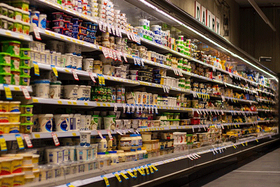
|
The UK Department for Environment, Food & Rural Affairs (Defra) has published the third iteration of illustrative base fees for the packaging Extended Producer Responsibility (pEPR) scheme. The updated fees reflect packaging tonnage data reported during the first half of 2024 and are designed to provide clearer cost estimates for producers. Rates for 2025-2026 vary by material, with plastic (£485/tonne) and fibre-based composites (£455/tonne) being the most expensive, while glass (£240/tonne) and paper/board (£215/tonne) incur lower charges. Criticism from industries, especially glass, has influenced Defra’s refinements to earlier estimates. Despite this update, the fees remain subject to change as more data is reported by producers by the April 2025 deadline.[Image Credit: © Squirrel_photos from Pixabay]
|
Some U.S. States Tighten Plastic and Waste Policies |
|
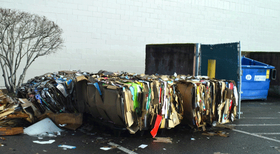
|
A series of new state laws in 2025 reflects increasing focus on reducing plastic waste and enhancing reuse systems. Measures include bans on polystyrene foam containers in Rhode Island, Oregon, and Illinois, with expanded restrictions for smaller businesses. New York and Illinois have prohibited single-use personal care packaging in hotels, reflecting a broader shift towards reducing single-use plastics. Oregon’s updated bottle bill will cover canned wine starting July.[Image Credit: © J A Uppendahl on Unsplash]
|
Unilever Merges Sustainability and Communications Teams |
|
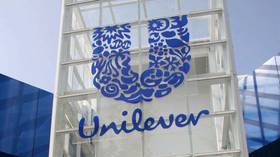
|
Unilever announced the merger of its sustainability and external communications divisions, a move reflecting CEO Hein Schumacher’s vision of integrating corporate priorities. The decision comes after Unilever scaled back some environmental and social commitments, including targets on plastic reduction and compensation, citing shifting global challenges. Rebecca Marmot, Chief Sustainability Officer, will now oversee external communications following the departure of Paul Matthews, the former Global Head of Communications and Corporate Affairs. [Image Credit: © Unilever]
|
Greenpeace Pushes Reuse Policy for the Philippines |
|
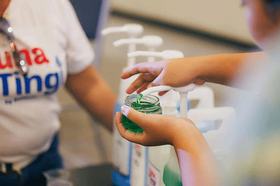
|
Greenpeace Philippines advocates for reuse and refill systems as a sustainable solution to the country’s plastic crisis, emphasizing the need for upstream interventions to reduce environmental, social, and health impacts caused by plastic throughout its lifecycle. It points out that unlike downstream measures, reuse and refill models tackle pollution at its source, promoting a "slow circular economy" that minimizes resource extraction, production, and waste generation. The organization’s position paper recommends government policies to mandate and mainstream reuse systems as part of the country’s commitment to safeguarding public health and the environment. It highlights the importance of creating a fair and robust policy framework that ensures environmental and socioeconomic sustainability.[Image Credit: © Jilsun Tiu from Greenpeace]
|
Dow and Innventure Partner To Tackle Plastic Waste |
|

|
Dow and Innventure are collaborating to convert hard-to-recycle plastic waste into petrochemical feedstocks, advancing global plastic waste reduction efforts. Through Refinity, Innventure's new subsidiary for the partnership, they will commercialize thermochemical processes like gasification to produce sustainable chemicals that replace virgin fossil fuels. [Image Credit: © Innventure, LLC]
|
Biomass Sponge Tackles Microplastic Pollution |
|
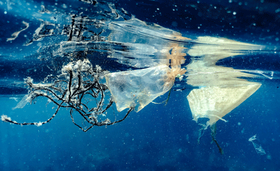
|
Chinese researchers developed a sponge made from cotton cellulose and squid-derived chitin that removes up to 99.8% of microplastics from water. This innovative fibrous foam may offer a low-cost, scalable solution to tackle microplastic pollution in aquatic ecosystems. It captures microplastics through physical and electrostatic mechanisms, maintaining performance across multiple uses. Researchers suggest potential applications in wastewater treatment and household appliances.[Image Credit: © Naja Bertolt Jensen on Unsplash]
|
